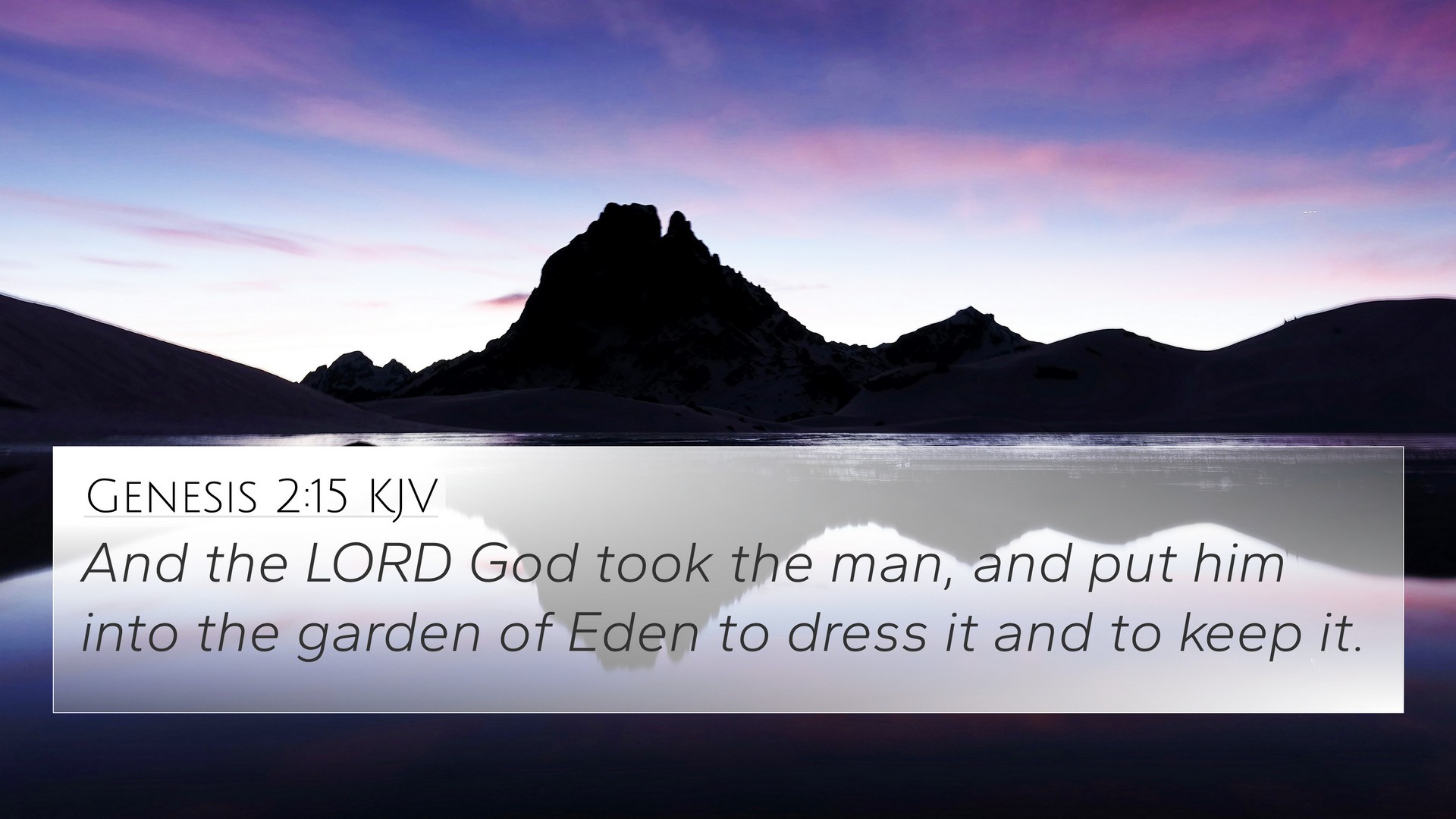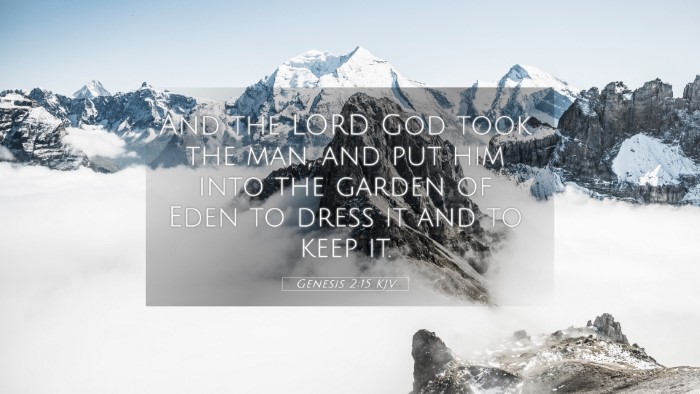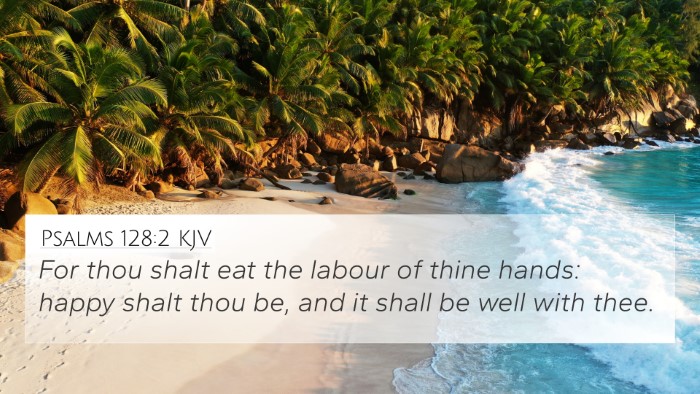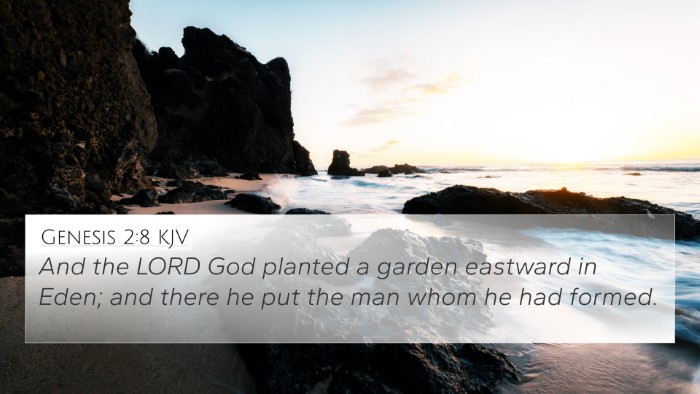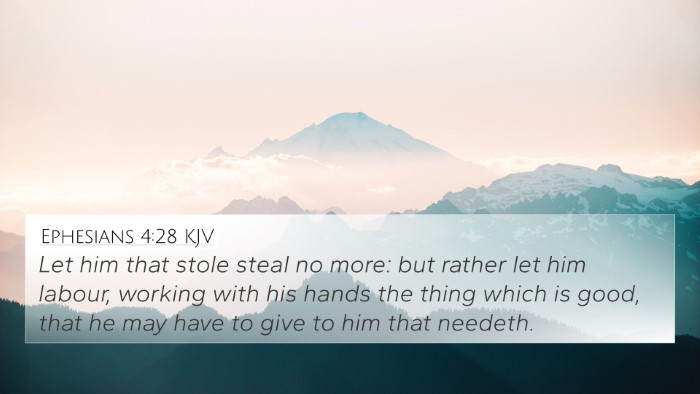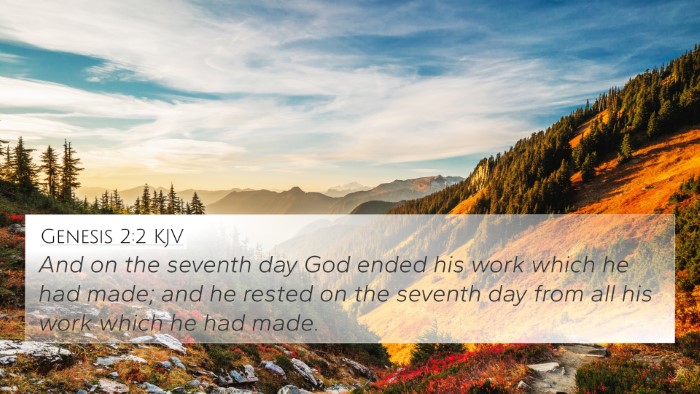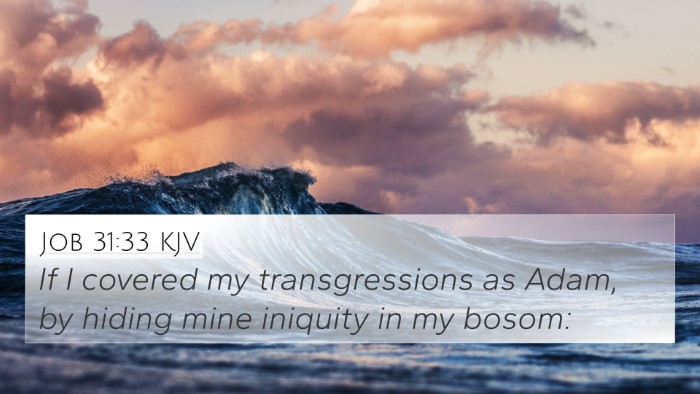Understanding Genesis 2:15
Genesis 2:15 states: "The Lord God took the man and put him in the Garden of Eden to work it and take care of it." This verse captures significant themes regarding humanity's purpose, God's creation, and divine intention. Below, we provide a comprehensive analysis by combining insights from public domain commentaries, emphasizing the profound meanings found within this scripture.
Context and Overview
This verse takes place in the narrative of creation, following the account of humanity's formation. Here, God assigns a role to Adam - to cultivate and care for the Garden of Eden, highlighting humanity's initial responsibilities and relationship with nature.
Insights from Commentaries
-
Matthew Henry:
Henry points out that this passage illustrates not just mankind's placement but also the divine expectation to steward God's creation. He emphasizes the importance of labor as inherently good, pre-dating the Fall, suggesting that work was part of God's original design for humanity.
-
Albert Barnes:
Barnes elaborates on the significance of the Garden of Eden as a place of perfection created by God for human habitation. He highlights that tending to the garden symbolizes the cultivation of spiritual virtues, urging believers to nurture their own spiritual lives as Adam did with the earth.
-
Adam Clarke:
Clarke discusses the dual aspect of Adam's role: both to work and to keep the garden, which signifies the need for diligence and care in our duties. He relates the concept of 'keeping' the garden to moral watchfulness, underscoring that we should guard what God entrusts to us.
Key Themes and Ideas
This verse conveys several key themes:
- Stewardship: The notion of humans as caretakers of God's creation is central. We are not only to enjoy the beauty of the earth but also to be responsible for its upkeep.
- Work as a Divine Assignment: Work is portrayed positively, suggesting it is part of God's plan for humanity's fulfillment. Ellen White states that labor is a blessing, and it enriches one's existence.
- Human Responsibility: The command to 'work' and 'take care of' implies an active engagement with creation, illustrating a partnership between God and humanity.
- The Garden as a Symbol: The Garden of Eden symbolizes a state of harmony and closeness to God, serving as an ideal environment for fulfilling divine directives.
Cross-References to Genesis 2:15
In studying Genesis 2:15, several cross-references enhance understanding:
- Genesis 1:26-28 - God gives humanity dominion over creation.
- Psalms 8:6 - Speaks to the authority mankind has over the works of God’s hands.
- Ecclesiastes 2:24 - Highlights the enjoyment of labor and its fruits.
- Colossians 3:23-24 - Encourages working heartily as for the Lord.
- Matthew 25:14-30 - The parable of the talents emphasizes the importance of faithful stewardship.
- 1 Peter 4:10 - Each believer is called to use their gifts to serve others.
- Revelation 22:3 - In heaven, God's servants will serve Him, reflecting the purpose established in Eden.
Connecting Themes Across Scripture
The themes presented in Genesis 2:15 resonate throughout the entire Bible, creating a tapestry of interconnected biblical insights:
- Thematic Bible Verse Connections: The relationship between God and humanity evolves from creation to fulfilment, with each verse contributing to the overarching story of redemption.
- Inter-Biblical Dialogue: Analyzing other scriptures reveals God’s consistent call for humanity to engage, create, and develop God’s gifts throughout various contexts.
- Comparative Bible Verse Analysis: By comparing Genesis 2:15 with passages from other books, we clarify the breadth of God’s intention for humanity’s works.
Application for Today
The implications of Genesis 2:15 are profound for contemporary believers:
- Understanding Our Purpose: Each individual is called to discover their unique role and tasks from God, promoting diligence in both spiritual and secular work.
- Engaging with Creation: Stewardship extends to environmental concerns today, encouraging Christians to actively participate in caring for the earth.
- Promoting Balance: Work should not disrupt our relationship with God. Instead, it should enhance it, reflecting the ideal living God has established.
Conclusion
Genesis 2:15 serves as a powerful reminder of our responsibility as stewards of creation. Insights drawn from traditional commentaries illustrate the enduring relevance of this scripture, guiding both our practical lives and spiritual pursuits. As we engage in cross-referencing Biblical texts and exploring the connections between Bible verses, we deepen our understanding of God's intended purposes for all creation.
As believers delve into Bible verse cross-references, they will find that *Genesis 2:15* is a cornerstone that informs broader theological perspectives on stewardship, purpose, and divine calling.
